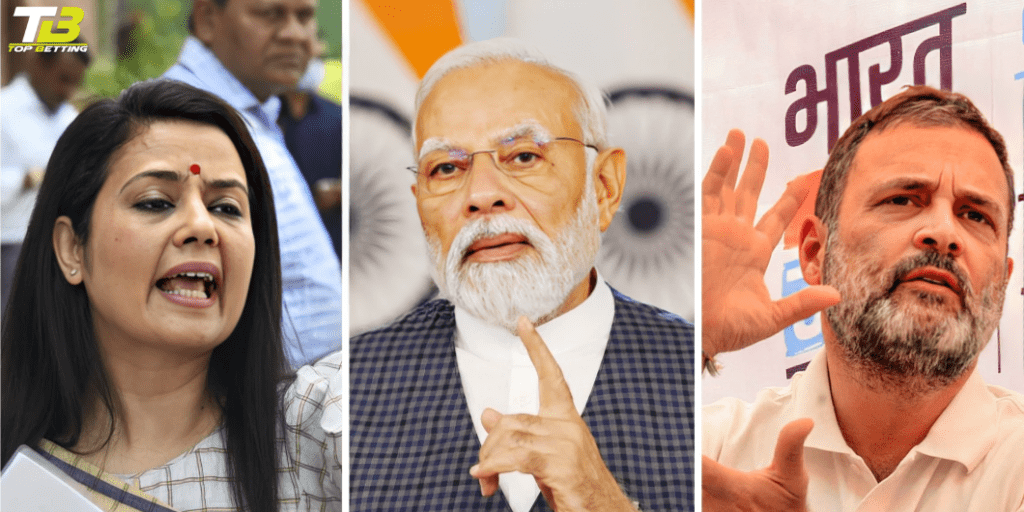
Congress links SBI electoral bond for LS polls
Mallikarjun Kharge called the electoral bonds scheme opaque and undemocratic. He said the BJP government is using the bank as a shield.
New Delhi: Reacting to the State Bank of India’s plea before the Supreme Court seeking more time to disclose electoral bond details, Congress chief Mallikarjun Kharge on Tuesday accused Prime Minister Narendra Modi’s government of using the bank to hide its alleged “dubious dealing”.
Weeks after the Supreme Court ordered India’s largest bank to disclose the details of bonds encashed by political parties, the SBI moved the apex court and sought an extension of the deadline till June 30. The court had ordered the bank to furnish the details till March 6.
Kharge called the electoral bonds scheme opaque and undemocratic. He said the BJP government is using the bank as a shield.
“The Modi government is using the largest bank of our country as a shield to hide its dubious dealings through Electoral Bonds,” he said.
Kharge said the BJP wants the SBI to share the details after June 30, by when the Lok Sabha elections will be over.
“But the BJP wants it to be done after Lok Sabha elections. The tenure of this Lok Sabha will end on 16th June and SBI wants to share the data by 30th June,” Kharge said.
He claimed the BJP was the biggest beneficiary of the scheme.
“Isn’t the government conveniently hiding the BJP’s shady dealings where contracts of highways, ports, airports, power plants etc. were handed over to Prime Minister Narendra Modi’s cronies in lieu of these opaque electoral bonds,” he asked.
“Experts say that the 44,434 automated data entries of donors can be divulged and matched in just 24 hours. Why does the SBI then need 4 more months to collate this information?” he said.
“Congress party was crystal clear that the Electoral Bonds scheme was opaque, undemocratic and destroyed the level playing field. But the Modi government, PMO and FM bulldozed every institution – RBI, Election Commission, Parliament and Opposition to fill BJP’s coffers,” Kharge alleged.
Kharge said the Modi government is trying to use SBI to bulldoze the Supreme Court’s judgement.
Congress MP Manish Tewari said the Supreme Court should not allow the SBI to “get away with its chicanery on Electoral Bonds”.
“People before the General Elections must know who got what from whom & whether there was any prima-facie quid pro quo involved?” he said.
On Monday, in a post on X, Rahul Gandhi had said: “Narendra Modi has put his entire force in order to hide the ‘donation business’.”
“When the Supreme Court has stated that it is the right of the people of the country to know the truth about electoral bonds, then why does the SBI not want this information to be made public before the elections?” he added.
SBI, in its plea, said the donations were kept anonymous and retrieving the information was a time-consuming exercise.
“It is submitted that the data related to the issuance of the bond and the data related to the redemption of the bond was kept recorded in two different silos. No central database was maintained. This was done to ensure that donors’ anonymity would be protected,” it said.
Last month, the Supreme Court said the scheme violates the right to information and the right to freedom of speech and expression.
The State Bank of India, as the authorized bank for issuing electoral bonds, recently announced that it would issue and encash electoral bonds through its specified branches from a certain date. The Congress has seized upon this development, framing it within the broader context of the upcoming Lok Sabha elections.
The party alleges that the timing of the SBI’s decision raises questions about its potential impact on the funding dynamics of political parties leading up to the parliamentary elections. Congress spokespersons have pointed out that the ruling Bharatiya Janata Party (BJP) has historically been the primary beneficiary of electoral bonds, as data suggests a significant share of these bonds has been purchased in its favor.
The Congress party has accused Prime Minister Narendra Modi and the BJP of manipulating the electoral funding system to their advantage, creating an uneven playing field for the upcoming elections. The opposition party contends that this move could potentially influence the flow of funds to political parties and impact the transparency of electoral financing.
The electoral bond system, introduced in 2018, allows individuals and corporations to make donations to political parties anonymously through bonds purchased from authorized banks. Critics argue that this mechanism undermines transparency in political funding, as the identity of the donors remains confidential.
As the political discourse intensifies, the Congress party’s linkage of the SBI’s electoral bond decision to the Lok Sabha polls adds a layer of complexity to the ongoing debate surrounding electoral reforms and financial transparency in Indian politics. The government, on the other hand, maintains that electoral bonds are aimed at promoting legitimate and clean political funding while protecting the privacy of donors.

The unfolding scenario underscores the perennial challenge of balancing the need for financial support for political parties with the imperative of ensuring transparency and accountability in the electoral process. As the political landscape continues to evolve, the debate over electoral bonds is likely to remain a focal point, with ramifications for the broader discourse on electoral reforms in India.












